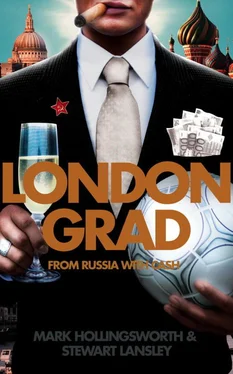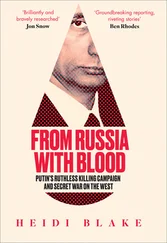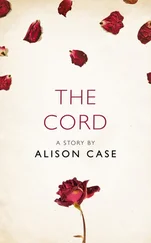After the 1917 Revolution, relatively few affluent Russians fled to London – only 15,000 by 1919. Far more moved to the Slavic states, to Berlin, and to a lesser extent to France and China, particularly Shanghai. Those who did arrive in Britain were a mix of aristocrats and middle-class liberal intellectuals, notably the family of the philosopher Isaiah Berlin who arrived in 1919 and settled in the Surrey town of Surbiton. ‘I am an Anglophile, I love England,’ Berlin once reflected. ‘I have been very well treated in this country, but I remain a Russian Jew.’ [8] Elinor Slater and Robert Slater, Great Jewish Men , Jonathan David Publishers, 1996, p. 60.
Other descendants of this first wave of Russian immigration include the actress Dame Helen Mirren (born Ileyna Vasilievna Mironov), winner of an Oscar for The Queen , and the Liberal Democrat leader Nick Clegg.
During the Cold War there was always a sprinkling of new Russians coming to London. Some were dissidents fleeing the gulags; others were high-level KGB defectors who ended up rubbing shoulders in London with White Russians – mostly the offspring of those who had fled Russia after 1917. The latter lived mostly quiet lives, spoke good English, and were largely Anglicized. The 1991 Census recorded 27,011 residents living in the UK while claiming the former Soviet Union as their place of birth. Most of them would have been Russian.
The collapse of the Eastern Bloc in the late 1980s had a dramatic impact on the pace of Russian arrivals, unleashing a new and unprecedented wave of migration from Russia and former Soviet and East European states. In 1991 the British Embassy in Moscow issued barely 100 visas – to a mixture of those working for Russian companies, students, and Russians who had married Britons – while only one Russian living in the UK was granted citizenship. Even by the mid-1990s, Londoners would have started to become aware of the occasional unrecognizable foreign accent in a shop or in the street – those Russians who did come congregated in a few favourite restaurants and nightclubs – but otherwise the early arrivals remained largely anonymous. Gradually that trickle turned into a flood. By 2006, the number of Russian visas issued had soared to 250,000, while the number granted citizenship in that same year had risen to 1,830. Berezovsky has likened the twenty-first-century Russian wave to the influx of nineteenth-century Russians to Paris. ‘It used to be that Russian aristocrats spoke French and went to France,’ he said. ‘The modern Russian speaks English and feels more comfortable in England.’ [9] The Times , 7 September 2002.
The early Russian migrants – mostly professional middle class but by no means wealthy – were joined within two or three years by a quite different stratum of Russian society. These were what their countrymen dubbed ‘the new Russians’, and they started to arrive between 1993 and 1994. This is the group that was beginning to make money, though not on the same subsequent scale, out of Boris Yeltsin’s economic reforms, the easing of restrictions on private enterprise, and the first wave of privatization. They were a mix of state bureaucrats, entrepreneurial hustlers, Kremlin insiders, and former KGB officials; others were members of emerging Russian-based criminal gangs.
This group of ‘new Russians’, who were always outnumbered by ‘ordinary’ Russian migrants, were by and large not coming to London to settle down. They came on short-term tourist or business visas, to attend a conference or a business meeting, or on shopping and spending trips. As one Russian already living here who knew some of them put it, ‘At this time there was no real dream to come and settle in London. It was difficult to get a permanent visa except illegally, work permits were scarce, and most of this group could make much more money in Moscow than in London. They had money and came here for a week or two at a time to burn it.’
During the 1990s, Britain gradually eased its entry regulations. Tourist and business visas became easier to acquire. Especially welcomed by the authorities were those with money. Anxious to encourage investment from abroad, the government bent the rules to encourage the arrival of the super-rich. ‘Essentially, if you are coming to the country with money to spend, you’re very much welcomed with open arms,’ said John Tincey, Vice-Chairman of the Immigration Service Union, in 2007. [10] Jonathan Dee, New York Times , 9 September 2007.
In 1996 the Conservative government of John Major introduced a new ‘investor visa’ for those wanting to make the UK their main home and able to invest at least £1 million in the country. Of this at least £750,000 had to be invested in either government bonds or UK-registered companies. Those investing in this way were, after five years, allowed to apply for permanent residency and eventually UK citizenship. Only one other country in the world – the United States – operated such a scheme (though with a much lower entry fee) and a number of wealthy Russians took advantage of the rule. All they needed to do was meet the investment cash criterion.
The process of seduction worked. The Russians, along with the super-rich of other nations, poured into Britain. As Forbes magazine described it in 2006: ‘London attracts the elite of the world’s rich and successful. It can lay claim unchallenged to one title: it is the magnet for the world’s billionaires.’ [11] Forbes , 16 November 2006.
Once here, the newly enriched Russians were not shy about spending their way through the capital. They quickly became addicted to high living the British way. In London, history, culture, and the attractions of consumer spending often come together in classic British brands that seem to have a special appeal. The more traditional, the more alluring: shopping at Fortnum & Mason and Burberry, buying a £900 bottle of port at the St James’s wine merchant Berry Bros & Rudd, tea at Claridge’s, and dinner at Rules. The Russians also took to two other British institutions, London’s leading auctioneers Sotheby’s and Christie’s. Here, at the height of the art boom of the mid-noughties, they could be found outbidding other collectors and leading international dealers for the works of French Impressionists and contemporary British artists.
But the staggering spending of Russians is not based just on a crude materialistic desire for luxury goods; it also stems from a fatalistic mindset and generally pessimistic approach to life. For centuries the Russian people have suffered enormous hardship, poverty, starvation, and brutal repression: an estimated 20 million died during Stalin’s regime, and another 1.1 million perished during the siege of Stalingrad alone during 1942-3. Even after the collapse of the Soviet empire, millions continued to live in a state of permanent insecurity and anxiety exacerbated by a harsh winter climate, economic instability, and a corrupt rule of law. Even the new billionaires and their families believe that they could lose everything tomorrow. A favourite Russian saying goes: ‘Never say never to poverty or prison. Both could happen tomorrow.’ This is why they spend. And they also believe in another Russian adage: ‘That which does not grow and expand will expire and will then die.’
For the Russian male the addiction to spending has manifested itself in the acquisition of yachts, jets, and cars. ‘We have a positive attitude towards the English car culture,’ said Alexander Pikulenko, motoring correspondent for the Moscow radio station Ekho Moskvy. [12] Mark Milner and Luke Harding, Guardian , 1 May 2008.
In 2007 an estimated 40 per cent of Mercedes-Benz sold at their central London showroom went to Russians. The Russians also brought the good times to the UK’s fledgling private aviation industry and helped turn scores of Britain’s own home-grown entrepreneurs, such as the young property tycoons Candy and Candy, into multi-millionaires almost overnight.
Читать дальше
Конец ознакомительного отрывка
Купить книгу












